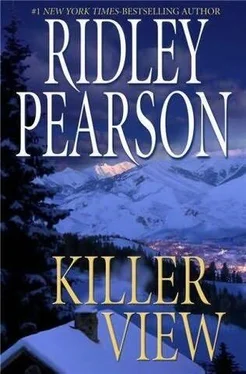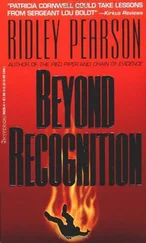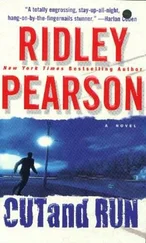Walls of snow now rose fifteen feet on either side of him as the avalanche advanced down the hill. He thought he would be buried. And then, without warning, it stopped. As still as concrete.
All sound seemed to stop along with it, replaced by the quiet calm of a winter forest. Some wood creaked. He heard the chittering of a squirrel followed by the irritated call of a western magpie.
He slid down to a sitting position on a slight cushion of snow in the protection of the rock and gave a prayer of thanks.
Then, suddenly, he heard the distinctive buzz of a snowmobile.
It was running hard, traveling away from him, fading slowly behind the frantic pulse of blood in his ears.
WALT CALLED OUT ON THE SATELLITE PHONE AND A CHALLIS deputy picked him up on Yankee Fork Road an hour later. Once in town, the Challis sheriff vented his frustration over Walt’s destruction of their property and the dispatching of his men on what turned out to be a wild-goose chase: no one towing snowmobiles or matching Aker’s description had been turned up at the now-defunct roadblocks. Walt’s promise to replace the destroyed snowmobile failed to gain him much ground. The wolf incident a year earlier lay between them.
Brandon had been driven to a hospital in Salmon, Idaho, which, as far as Walt was concerned, was the kiss of death, given the community’s isolation. The polio vaccine was considered advanced medicine in Salmon. Brandon ’s only hope was that Salmon probably saw plenty of gunshot wounds.
Walt and the sheriff organized a team of four to revisit the Aker’s cabin and collect evidence. There was much to be done, from photographing tracks, the broken window, and the cabin’s interior to searching beneath the trees for shell casings. Walt called in Fiona’s services and waited the two hours for her arrival.
It was agreed that Walt and Fiona could initially work the cabin.
Instead of snowshoeing up, everyone teamed up on snowmobiles. Fiona climbed on behind Walt. Her gloves were too thick for the strap on the seat behind him, so she ended up wrapping her arms around his waist, and she and Walt bounced their way up the road.
He leaned over his shoulder and shouted above the machine’s roar. “Everything we have points to a kidnapping.”
She shouted back. “This thing just gets crazier and crazier.”
Walt hadn’t told her about the avalanche, only the possible abduction and Brandon ’s shooting, which seemed enough information to process.
A few minutes later, they entered the cabin, and Walt propped the broken door shut to try to contain some of the warmth from the propane heater.
They circled the cabin’s main room, Walt pointing out areas he wanted photographed.
They hadn’t been inside but a few minutes when she asked, “Do you know a guy named Roger Hillabrand?”
“I know of him, sure. Extremely wealthy. Well-connected.”
“I met him at a wedding I was shooting.”
“And I need to know this because…?” Having worked the floor for one full turn, Walt directed his attention to the furniture and the walls.
“No reason. Just wondered.”
“I don’t believe that,” he said from the opposite side of the room.
“No reason,” she repeated.
“Women don’t mention other men for no reason.”
“You’re the sheriff. That gives you an insider’s position when it comes to people like Roger Hillabrand.”
“He’s not a serial killer,” Walt said. “That I’m aware of.”
“Thank you.”
“Now you’re mad at me.”
“No, I’m not.”
“If you want me to be jealous, I’m considering it.”
“Furthest thing from my mind, I promise you.” She hesitated. “Why would I want you to be jealous, anyway?”
“My mistake,” he said.
“It most certainly was.”
“Government contracts. Like Halliburton. That kind of thing. Iraq. Afghanistan. Domestic work as well. Site clean-ups. Nuclear facilities. He attends the Cutter Conference-that’s how I know all this. Has a very… professional… security detail around him.”
“Was that sarcasm or cynicism?”
“Ex-military. All of them.”
“Is that so unusual?”
“Yes, as a matter of fact it is. Ex-cops is more typical. Big-city cops: New York, Chicago, Miami. Those are the guys these guys hire. They’ve got the résumé, and they maintain good contacts. An effective security detail needs access to other law enforcement. Hiring military discharges gives you brawn but no brains, in terms of connections.”
“Discounting the Pentagon.”
“Knowing someone in the Pentagon doesn’t tell you who you can trust in the NYPD to get your guy across town safely.”
“But nothing bad? Roger, I mean. Does he have a reputation?”
“As a ladies’ man? A drinker? A gambler? Not that I’ve heard, no. But he’s in that upper echelon of power brokers, and, from what I’ve learned, they all dip their toes in that water, whether they’re known for it or not.”
“That’s a little harsh, don’t you think?”
“Over here,” he said. She crossed the room and studied where he was pointing. Four pushpins framed an empty space on the wall. Three more pushpins were on the floor. They’d missed those pins the first time around, something neither mentioned but both were thinking.
Fiona readied her camera, changing some settings.
“Something was pinned up here. A photo maybe. Or a calendar. Or…” He reached out and gently moved a red pushpin, tilting it. A small triangle of torn paper swung down from where it was stabbed by the pin. There was a light green border on the white paper, along with a series of numbers.
“Money?” she said.
“If I had to guess, I’d say maybe a map. A topo map.”
“Don’t you have to guess?” she asked.
“As little as possible,” he answered. “Those numbers on it will help us identify it.”
The cabin was constructed of three-sided logs, with the milled face on the interior. Walt pointed out three distinct pinholes at the center of the four others, which, to him, represented corners. He told her he wanted a lot of coverage on these, including a way to reconstruct it to scale.
He pocketed the torn corner of paper, protecting it in an evidence bag, and left her to work.
They were thirty minutes into it when Walt stomped his foot down onto the area rug in the small bathroom. His ear had picked up a difference in sound and it did so again. His thumping brought a curious Fiona. He peeled back the area rug, which was tacked on one end but loose on the other.
It covered a hatch that had a recessed handle carved out of the top. He pulled out the Beretta for good measure, signaled Fiona to step back, and yanked it open. His penlight led the way as he climbed down into the dark. He found a light switch, and a compact fluorescent glowed.
It was a small, square space, eight feet by eight feet-two sheets of plywood on each wall. It had been dug into the earth but was built only with wood, not concrete.
Mark had installed the equipment for solar power down here: an inverter, a battery bank. There was a French-made instant-hot-water device, an air pressure tank, and a composting toilet that smelled of peat moss. And two lawn chairs. A portable radio. Five-gallon jugs of spring water. A variety of freeze-dried foods. A camp stove. Two sleeping bags-though not enough room to unroll them.
Steep ladder steps led down, ending near the battery bank.
Fiona clicked off several shots by lying down on the floor above. “A safe room?” she asked.
“Looks that way. Not originally, of course. But he’d made it into one. Check out the bolt,” he said, indicating the open hatch.
She photographed the three large steel bolts on the underside of the hatch, making note of the steel plating that had been installed on not just the hatch but across most of the ceiling of the room.
Читать дальше












